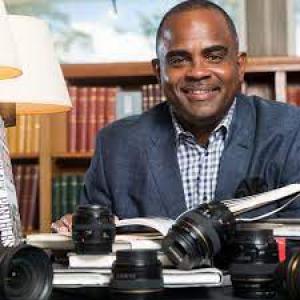Resources
The barage of sustained crisis is weighing heavily. Even while enduring crisis, moments of clarity about issues of vocation, identity, and spiritual awareness are possible. What are questions of discernment which comfort, guide, and stabilize us during this time of flux. Dr. Nancy Lynne Westfield hosts Dr. Su Yon Pak, Senior Director and Associate Professor of Integrative & Field Based Education at Union Theological Seminary.
The initial shock of the pandemic crisis is over - the prolonged crisis keeps unfolding. Our up-ended lives are riddled with fear, grief and uncertainty. What does it mean to cope with the experience of “working twice as hard to get half as much done?” This is a conversation with Mindy McGarrah Sharp (Columbia Theological Seminary) about coping in these moments.
What kinds of preparedness is there for events like mass shooting or a devastating storm? What does it mean to teach immediately after these events? What happens when these events occur in your school or immediate community or in your classroom? How does one teach when there is a national interruption? What is a trauma informed classroom?

We get that email from the library staff asking for our book selections for our upcoming course. We have taught the course before, so the library is kind enough to send the list of books we used the last time. In most cases we use the same books, but from time to time we add a new selection. Our courses look the same, they sound the same, and in many instances we teach the same books that we were taught. We can become complicit in petrifying the canon. Even if it is a new canon, it becomes constrictive and many of our courses privilege reading. We start with “books.” What if we started with the visual, sound, and look of the course? What if we were bold enough to do something we had never dreamed of doing in a course, designing experiences that were inherently transformative? I propose that if we are to do the new, the challenging, the daring, the unusual, we have to expose ourselves to the new in our daily life and practice: my wife and I dared to kayak! We had never kayaked before but as our practice is to do the new in the schools that we serve, we are doing new things that will make us new. Things that will expand us and transform us. We took an REI Class on kayaking at Sweet Water Creek State Park in Atlanta. The park is only thirty minutes from our home but when we’re on that lake it feels like we’re miles away. In doing the new, we are becoming new. Becoming new naturally pushes me to try the new, to experiment and develop classes that take students out to kayak with me. While we might not literally kayak, we will do the new, the different, the exciting. The more we do the new, the more we will try the new. Try something new and exciting that takes you out of your comfort zone and see how these experiences transform your teaching!
What is trauma and how does trauma affect body, mind, and spirit? Are there different kinds of trauma? Since classrooms are spaces of human interactions, understanding how fear and woundedness affects the teacher and the learner is critical to effective teaching. What classroom practices might lessen the experience of fear, helplessness, voicelessness, and being overwhelmed?
How are you? The response to this question can be weighty during the COVID 19 pandemic. What we teach can be disturbing. What adjustments in our syllabi and teaching practices might aid in care? What could go wrong while attending to the needs of students? Why are classrooms never to be spaces of therapy?
Informed definitions of trauma are needed. Classrooms are never spaces for therapy. Ways of developing trauma awareness, self-care strategies and referrals. Creating spaces of respect, regard and care are needed for faculty, administration, and students. Dr. Nancy Lynne Westfield hosts Dr. Lisa Cataldo (Fordham University).
This 2021 course by Chelsea Starr at Eastern New Mexico University is an introduction to the basic perspectives with which sociologists analyze the relationship between religion and society. Explores the social processes at work in congregations and denominations, new religious movements, conversion/deconversion, religious identity, secularization, minority religions, inequalities and religion, and current trends.